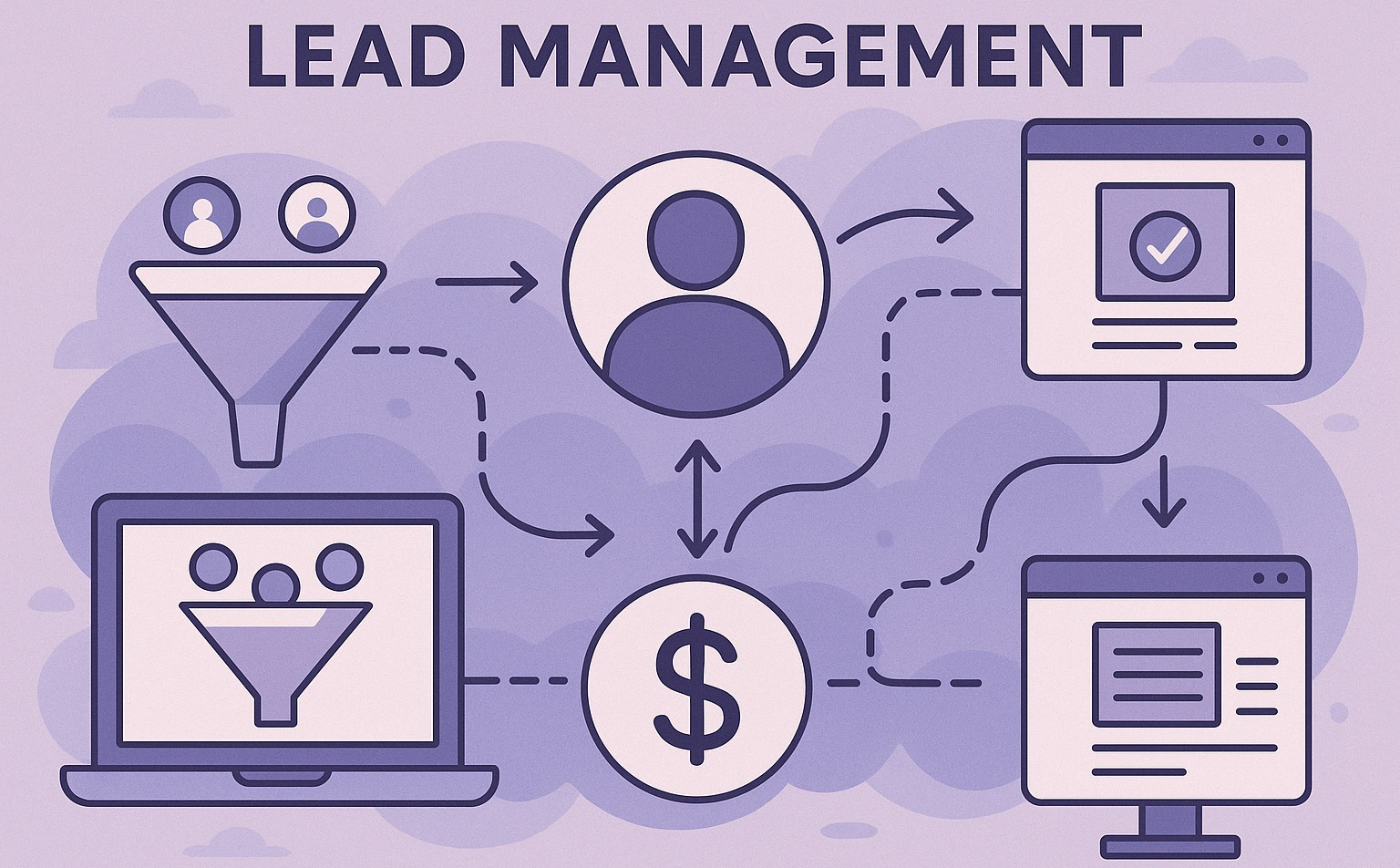Affiliate marketing is not a new way of expanding an online business, but it has proven to be one of the cheapest. According to the Influencer Marketing Hub report, more than 80% of advertisers utilize affiliate marketing. The spreading information financial model lets businesses expand their offerings. They rely on partners to market products.
In return, these partners earn commissions, avoiding the need for traditional advertising. However, over time, competition has grown, and customers' expectations have changed. Therefore, affiliate programs can no longer be about registering affiliates and hoping to get conversions.
Effective affiliate management depends on how well a company handles the leads from affiliates. Leads need to be tracked, nurtured, and converted accurately, or the marketing dollar will go to waste. That is where automation comes into the picture. Automating lead management can cut out redundancy and improve communication. It links various systems through integrations. This helps businesses maximize their ROI.
The Role of Automation in Driving ROI
Automation can be connected with time-saving; however, in the realm of affiliate marketing, it has much more profound advantages. Each lead from an affiliate has a cost. This includes the commission you pay or the effort needed to move a prospect through the sales cycle. Unmanaged leads can cause businesses to lose revenue at each point in the funnel.
Automation helps capture leads, score them, route them, and follow up in a clear, error-free manner. Automated systems maintain that no lead is lost, all data is captured properly, and affiliates are consistently updated on how they are performing.
Automation boosts ROI through:
- Saving operational expenses related to the manual processes.
- Reducing the time taken in response to leads has a direct impact on conversion rates.
- Giving improved attribution and analytics, so managers can optimize campaigns in real time.
According to affiliate marketing statistics, 79.3% of affiliates use artificial intelligence tools. Automation shouldn’t just be seen as a way to replace human work. Instead, think of it as a tool that helps marketing teams focus more on strategy and building relationships. Many routine tasks are handled in the background, freeing up valuable time.
Lead Management Challenges in Affiliate Marketing
To understand how automation can help, we first need to spot the issues with traditional lead management in an affiliate program.

The aspects of affiliate marketing involve more than one party: the company offering affiliate programs and the parties, such as affiliates and prospects. All the stakeholders employ various tools and communication channels. This makes the environment fragmented, thereby siloing information without an integrated system.
Example: Affiliates can send leads to a landing page, but unless they are connected to the CRM system properly, lead data could get delayed or lost. Sales teams may go on to waste time chasing incomplete records, or worse still, they may end up not following up on the lead at all.
The other frequent problem is redundancy. When affiliates and in-house marketers both record the same lead, businesses waste money. They pay to commission the same person twice or make them get conflicting offers. This increases the cost of doing that and also hurts the customer experience.
There is yet another level of complexity, which is compliance. Due to GDPR and CCPA, businesses need to make sure that affiliates gather data in a compliant way and follow the data storage practices. Manual procedures tolerate too much room for error, which may result in fines and reputational loss.
How Integrations Streamline Lead Flow
Automation is based on integration. It allows different platforms to interact, like partner networks, CRM, e-marketing systems, and analytics dashboards. Without integration, automation would simply be a machine with missing links. A properly blended lead management cycle usually has the following appearance:
- Lead Capture: When an affiliate creates a lead, the info goes straight to the company’s CRM. There’s no need for manual entry.
- Lead Scoring: People use automation to score each lead based on their engagement level, demographics, or other set criteria. Lead information of high value is followed through immediately.
- Nurturing: Lead nurturing uses integrated email marketing to run tailored campaigns automatically. This happens as soon as the lead enters the system, ensuring quick and relevant communication.
- Sales Handoff: Beyond just routing leads to the right sales rep, automation can link all activity history to that lead.
- Performance Tracking: Affiliate performance metrics update in real-time through integrated dashboards. This boosts accountability and transparency.
It is the elimination of friction that makes integrations so powerful. Companies can avoid jumping between apps and dealing with CSV files. Instead, they can rely on one source of truth for their data. Not only does this speed up the lead cycle, but it can also minimize the margin of error that eats into ROI.
Practical Examples of Automation in Action
To illustrate how automation can change the nature of affiliate marketing results, here are some examples.
Examples 1: Automating Lead Distribution
A software company works with hundreds of affiliates. Together, they generate many leads every day. Without automation, the marketing centre wastes time finding and assigning leads to sales reps. Using an affiliate network for CRM integration means leads are automatically sorted. They get assigned to the right person based on territory and product interest. This guarantees that there is no delay in follow-up, and conversion rates become dramatically high.
Example 2: Affiliate Feedback in Real Time
Affiliates want to see how well their leads perform and often have complaints when they lack this visibility. Affiliates can connect their platform to the company's analytics dashboard. This lets them see real-time data on conversions, revenue growth, and payout status. This encourages them to alter campaigns on a real-time basis, which further makes the program more effective.
Example 3: Safeguards Against Compliance
A financial services company has some strict data protection rules to comply with. When it links affiliate lead collection forms to a compliance tool, the lead is automatically checked. This ensures proper consent was obtained and confirms that data storage procedures were followed. This will remove the risk of imposing fines, yet the operations will continue smoothly.
Measuring the ROI of Automation
What stops businesses from investing in automation tools is the fear of high initial cost. Nevertheless, the ROI can be characterized in obvious and convincing terms.
The first is to consider conversion rates. Quick replies and steady nurturing usually lead to higher conversion rates. A conversion even slightly improved will result in a significant revenue increase when applied to hundreds or thousands of leads.
Second, compute the savings cost. Automating tasks like entering leads, reporting, and follow-ups saves valuable man-hours. These are savings that compound over the years, making the cost per lead decrease.
Third, take into account the conditions of retention and satisfaction among affiliates. Affiliates will be more likely to stay engaged and be loyal when they see clear data and are paid out on time. Keeping high-performing affiliates leads to the reduction of churned affiliates and a stable, high-quality lead pipeline.
And last, there is the strategic value of data-driven insights. Automation can navigate a business with an abundance of analytics that can be used to make more shrewd decisions. For example, if managers know which affiliates bring in the best leads, they can invest in those affiliates more wisely. This can result in an even higher ROI.
Bottom Line
To sum up, affiliate marketing has ceased being a matter of chance—it is now a data-driven field where efficiency means profitability. This efficiency comes partly from automation. Integrations help streamline lead management, reduce errors, and provide instant insights.
As the future unfolds and automation grows, affiliate marketing will link more closely with it. Companies using these technologies are boosting productivity now. They’re also setting the stage for future success.
We invite you to join our affiliate program. Let's make automation more common and accessible to everyone. Become our partner and receive passive income.
